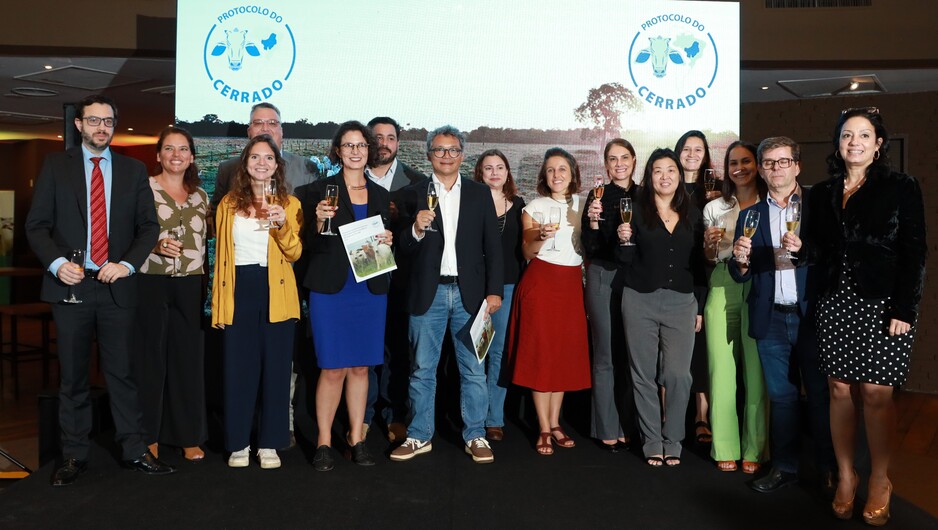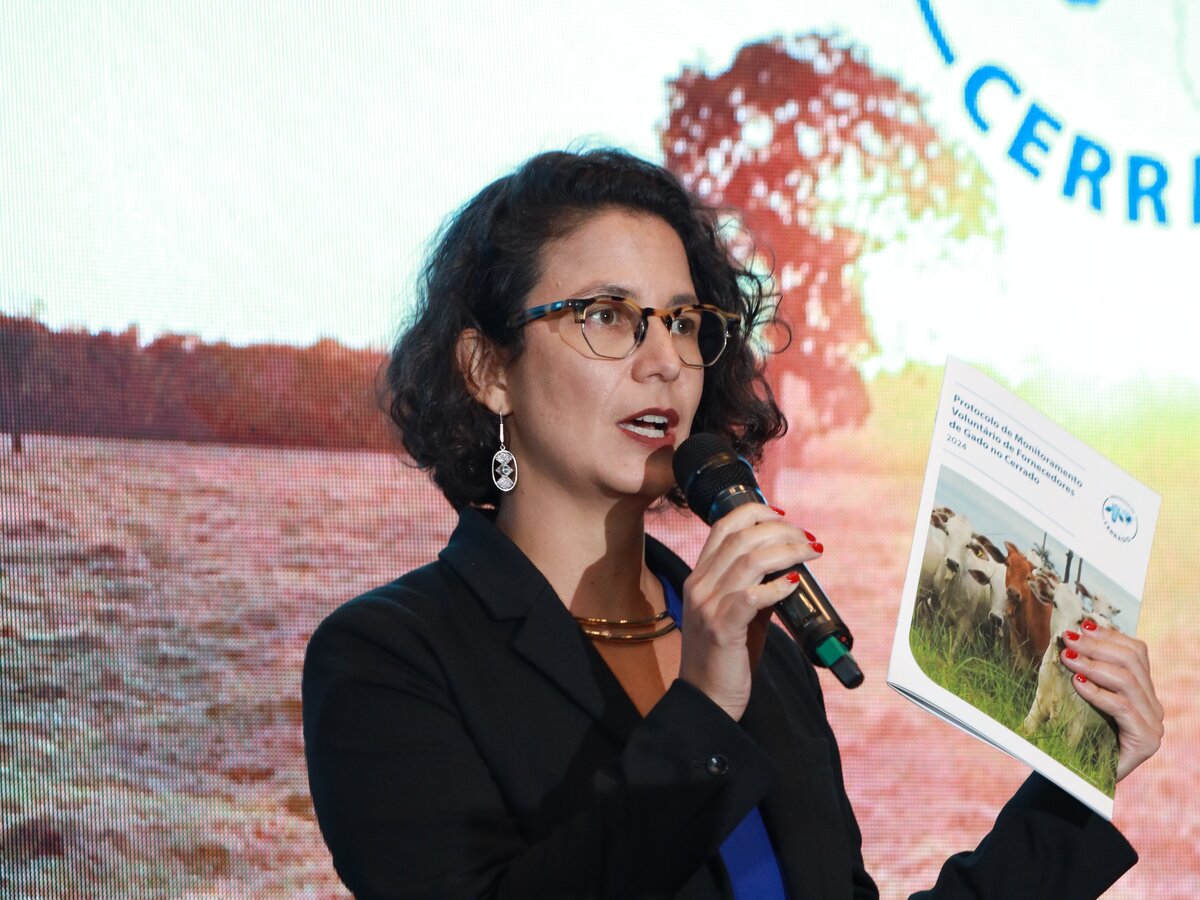24 abril 2024
Monitoring Protocol defines environmental commitments for livestock farming in the Cerrado

Livestock farming in the Cerrado has today (23 April) gained a foothold that will reinforce its commitments to the most demanding markets. The Protocol for Voluntary Monitoring of Cattle Suppliers in this biome lists 11 criteria and creates a common basis for socio-environmental compliance for breeders, acting as a guide for responsible production and sourcing.
In development since 2020, the Protocol is the result of a coordinated effort by the organisations Proforest, the Institute for Forest and Agricultural Management and Certification (Imaflora) and the National Wildlife Federation (NWF). It also had direct contributions from WWF Brazil, meatpackers and downstream companies, as well as the Federal Public Prosecutor's Office, livestock sector organisations and civil society.
The Cerrado Protocol is an important tool for the sector to prepare for growing market demands for Brazilian meat. It is the result of a broad convergence between retailers, meatpackers and civil society to balance the desire to protect natural resources and human rights with the realities of production in the field. Our aim is for the Protocol to be increasingly embraced by meatpackers and companies in the supply chain, promoting changes in the sector's practices in this specific biome and even in the country, says Isabella Freire, Proforest's Latin America Co-Director.

With the intensification of combating deforestation in the Amazon, the Cerrado has become the epicentre of this practice. The latest Prodes Cerrado, released last November, showed 11,011 km² of clear-cutting from August 2022 to July 2023 - a three per cent increase on the previous measurement. In the first quarter of this year alone, notifications from the Deter system, which monitors changes in forest cover in real time, pointed to 1,475 square kilometres of destruction in the Cerrado. The increase was 4 per cent compared to the same period last year and reached the highest level in the historical series.
The consequences of the loss of native vegetation for the conservation of the Cerrado, which stretches across municipalities in 14 states (in addition to the Federal District), concentrates the greatest savannah biodiversity in the world and brings together eight of Brazil's main river basins, are many and serious. In the last four decades, pasture and agriculture have expanded rapidly in this landscape. The Cerrado concentrates around 36 per cent of all Brazilian livestock and more than 63 per cent of grain production, according to data from the Ministry of Agriculture and Livestock (MAPA). Figures from the Brazilian Institute of Geography and Statistics (IBGE) point to 60 million head of cattle in this biome in 2022, at an annual growth rate of 11.23 per cent.
The Cerrado Protocol sheds light on this scenario by providing producers with parameters such as compliance with the Rural Environmental Registry (CAR), possible overlaps with areas of deforestation and suppression of native vegetation or protected areas (such as Indigenous lands, Quilombola territories and Conservation Units). It also involves cross-checking with public lists of slave labour and environmental embargoes, as well as analyses of the Animal Transit Guide (GTA) and the breeder's productivity, as a way of inhibiting the triangulation of animals from areas with environmental or social irregularities.
Even without offering certification, a seal or a guarantee mark, the initiative will improve control processes in the supply chain and improve the criteria adopted by meatpackers when purchasing livestock products. Information from the meatpackers that adhere to the Protocol will be available on a bilingual platform (www.cerradoprotocol.net), guaranteeing greater transparency of information for buyers, as well as for investors in the sector.
The Protocol is modelled on the experience of the Beef on Track Programme, which has been implemented in the Amazon since 2019 through a partnership between Imaflora and the Federal Public Prosecutor's Office. Beef on Track was the first initiative to harmonise rules in the sector and has been gradually improved. "We've used the five years of experience to bring solutions to another biome which support production in the face of more demanding markets, help consolidate the practice of sustainable livestock farming and contribute to tackling the climate crisis," says agronomist Lisandro Inakake, Imaflora's Project Manager for Agricultural Chains.
Efforts are now focussing on increasing the number of meatpackers joining the Protocol, which promises to be boosted by a goal set by the Brazilian Association of Meat Exporters (ABIEC) for its members to adopt monitoring standards throughout Brazil within two years. "Half of ABIEC's members operate in the Cerrado biome, with many of them already adopting cattle purchasing policies. The Cerrado Protocol plays a crucial role by unifying the criteria assessed and highlighting good practices, providing a pathway for companies that want to move forward in this direction," explains Fernando Sampaio, ABIEC's sustainability director.